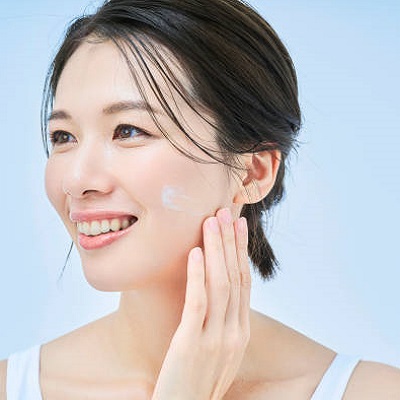Skin Whitening in Islamabad: Trends, Treatments, and Considerations
In Islamabad, like many other cities in South Asia, fair skin has long been idealized as a symbol of beauty, youth, and success. This cultural preference has led to a growing demand for skin whitening treatments as people strive to achieve lighter, more even-toned skin. While the beauty industry in Islamabad offers a wide range of treatments and products to help individuals lighten their skin, it is important to understand the different options available, the risks involved, and the broader cultural implications of this beauty standard. In this blog, we will explore the various skin whitening treatments in Islamabad, their benefits and side effects, and what you should consider before pursuing such treatments.
The Cultural Context of Skin Whitening
The desire for fair skin in Pakistan, particularly in Islamabad, is not a recent development. Historically, lighter skin was associated with higher social status, wealth, and privilege. This ideal was reinforced during the colonial era, and the preference for fair skin has continued to shape local beauty standards to this day. In recent years, the proliferation of social media and the influence of Bollywood and other entertainment industries have further amplified the notion that fair skin is the pinnacle of beauty.
This cultural emphasis on fair skin has led to an increase in demand for skin whitening treatments in Islamabad, ranging from simple home remedies to more advanced medical procedures. However, it is important to recognize that the pursuit of lighter skin can have negative psychological and health impacts, and it is essential to approach these treatments with caution.
Popular Skin Whitening Treatments in Islamabad
There are several skin whitening treatments available in Islamabad, each offering varying degrees of effectiveness. Below are some of the most common options:
1. Chemical Peels
Chemical peels are one of the most popular skin whitening treatments in Islamabad. During a chemical peel, a dermatologist applies a chemical solution to the skin, which causes the outer layer to exfoliate and peel off, revealing fresher, lighter skin underneath. This treatment can be effective in reducing hyperpigmentation, dark spots, and sun damage, leading to a more even skin tone.
Chemical peels come in different strengths, including light, medium, and deep peels, depending on the extent of treatment required. Common ingredients used in chemical peels include glycolic acid, salicylic acid, and lactic acid. While chemical peels can produce noticeable results, they also come with some risks, such as skin irritation, redness, and increased sun sensitivity. It is essential to follow the aftercare instructions provided by a dermatologist to avoid complications.
2. Laser Skin Whitening
Laser skin treatments are increasingly popular for those seeking more dramatic results in skin lightening. Lasers work by emitting concentrated beams of light that target excess melanin in the skin, effectively breaking down the pigment responsible for dark spots and uneven skin tone. In Islamabad, treatments like Q-switched Ndlasers and fractional CO2 lasers are commonly used for skin whitening.
Laser treatments are known for their precision and ability to target specific areas of pigmentation without affecting the surrounding skin. While they can be highly effective, they are also more expensive than other treatments and often require multiple sessions to achieve the desired results. Potential side effects include redness, swelling, and in some cases, scarring if the treatment is not done properly. It is important to consult with a certified and experienced dermatologist before opting for laser treatments.
3. Glutathione Injections
This is an antioxidant that is widely marketed as a skin-whitening agent. Glutathione injections are believed to reduce melanin production in the skin, leading to a lighter complexion. These injections are typically administered intravenously or intramuscularly and are popular in many beauty clinics in Islamabad.
While glutathione injections have gained a following, they are also controversial due to potential risks. There are concerns about the safety of glutathione injections, especially with prolonged use. Long-term use may lead to liver and kidney damage, and the injections can cause allergic reactions in some individuals. It is crucial to consult with a healthcare professional before considering glutathione injections to ensure they are safe for you.
4. Topical Whitening Creams and Serums
For those seeking a more affordable and accessible option, skin whitening creams and serums are widely available in Islamabad. These products typically contain ingredients like hydroquinone, kojic acid, vitamin C, and niacinamide, all of which have skin-brightening properties. Many people use these creams to lighten dark spots, pigmentation, and overall skin tone.
Topical creams are easy to use and relatively inexpensive compared to professional treatments. However, there are risks associated with some ingredients, particularly hydroquinone, which, when used for extended periods, can lead to skin thinning, irritation, and a condition called ochronosis (where the skin darkens and thickens). Therefore, it is essential to consult with a dermatologist before using these products to ensure they are suitable for your skin type.
5. Home Remedies
Many people in Islamabad also turn to natural remedies to lighten their skin. Ingredients like lemon juice, turmeric, yogurt, and gram flour are commonly use in homemade masks and scrubs. While these remedies are inexpensive and widely available, their effectiveness is generally limite compare to professional treatments.
Some natural ingredients, such as lemon juice, may have mild bleaching effects, but they can also irritate the skin or make it more sensitive to the sun. As with any DIY treatment, it is important to test for allergies before applying these ingredients to the skin, and to use them in moderation.
Risks and Considerations
While skin whitening treatments can offer noticeable results, they come with several risks and considerations:
- Skin Damage: Many skin whitening treatments, particularly chemical peels and lasers, can cause skin damage if not used properly. Overuse of these treatments can lead to redness, irritation, scarring, or increased sensitivity to the sun.
- Health Risks: Some skin whitening treatments, such as glutathione injections, can have serious health risks, including liver and kidney damage. The safety of these treatments is not always well-regulate, so it is important to carefully consider the risks before proceeding.
- Psychological Impact: The societal pressure to conform to beauty standards that prioritize fair skin can have a negative impact on mental health, particularly among young people. The pursuit of fair skin can contribute to low self-esteem, body image issues, and an unhealthy obsession with appearance.
- Colorism: The preference for fair skin perpetuates colorism, a form of discrimination based on skin tone. This can lead to marginalization of individuals with darker skin tones and reinforce harmful stereotypes about beauty.
Conclusion: Embracing Your Natural Skin Tone
The desire for fair skin in Islamabad is undoubtedly influence by cultural beauty standards and societal pressures. However, it is important to approach skin whitening treatments with caution and to recognize that beauty comes in all skin tones. Rather than focusing solely on achieving a lighter complexion, individuals should prioritize overall skin health by maintaining a good skincare routine, staying hydrated, eating a balanced diet, and protecting the skin from harmful UV rays.
Ultimately, true beauty lies in self-confidence, and confidence comes from embracing your natural skin tone. Whether you choose to pursue skin whitening treatments or not, it is essential to remember that beauty is diverse, and every skin color is beautiful. If you are considering any skin whitening treatments, be sure to consult with a qualified dermatologist to ensure you are making an informed decision that is right for your skin.














Post Comment